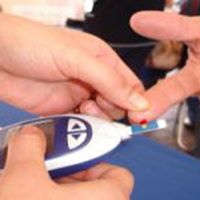Studies Show Promise for New Therapies
Advances in treatment could provide much needed help for patients with obesity, diabetes, and hypertension

A panel of distinguished physician-scientists presented up-to-the-minute results of important clinical trials in diabetes, obesity, hypertension, and thrombosis on Thursday at the Cardiometabolic Health Congress being held in Boston.
A recent publication in the New England Journal of Medicine reported the 3-year outcomes of a randomized trial to treat patients with uncontrolled type 2 diabetes using bariatric surgery plus intensive medical therapy or intensive medical therapy alone. Patients who received gastric bypass surgery achieved a significant reduction in BMI, going from a BMI of 37.1 to 27.9. Patients who received a sleeve gastrectomy also showed a significant reduction in BMI, from 36.1 to 29.2, over the 3-year follow-up period. Patients in the bariatric surgery group were also taking fewer medications at 3 years than patients who received only intensive medical therapy.
The big discussion in late-breaking diabetes trials was recently published data from the ACCORD trial. This randomized, controlled trial examined the effects on major cardiovascular disease events from intensive glycemia control, from fibrate treatment to increase HDL-cholesterol and lower triglycerides, and from intensive blood pressure control. A recent publication in the Lancet showed that intensive glycemia control was associated with an increased, but not significant, hazard ratio for fatal myocardial infarction. Other measures of ischemic heart disease did not show any increases in hazard ratio.
New data published in JAMA Dermatology documented that young women who used β blockers to treat hypertension were at an increased risk of developing psoriasis. The incidence of psoriasis in this patient population increased with a longer duration of therapy.
A novel oral antigoagulant, edoxaban, showed promising results in the Engage AF TIMI-48 trial. Patients with atrial fibrillation were randomized to receive edoxaban (30mg per day or 60 mg per day) or warfarin. After a median follow-up of 2.8 years, the patients receiving edoxaban had fewer strokes and systemic embolic events, an effect which was dose-dependent. Treatment with edoxaban also led to significantly fewer major bleeding events than treatment with warfarin. A recent analysis of secondary outcomes in this trial showed a reduced risk ratio for intracranial hemorrhage and a slightly increased risk ratio for gastrointestinal bleeding when comparing edoxaban with warfarin anticoagulant therapy.
The panelists also discussed important activity from the US Food and Drug Administration (FDA) in the cardiometabolic arena. In September, the FDA approved the anti-obesity drug Contrave, which is a combination of buproprion and naltrexone. As of Wednesday, physicians can now write prescriptions for Contrave.
Several new drugs to treat diabetes were approved in 2014. Albiglutide and dulaglutide are two new glucagon-like peptide-1 (GLP-1) drugs that are taken once per week. The FDA recently approved two drugs from the sodium-glucose cotransporter 2 inhibitor class, dapagliflozin and empagliflozin. Human insulin inhalation powder was also approved for use in the US.
After reviewing data on the antiogensin II receptor antagonist olmesartan, the FDA decided there was not sufficient evidence to conclude that diabetics taking the drug were at increased risk for cardiovascular events. Further, the FDA did not recommend that olmesartan be avoided in patients with diabetes.